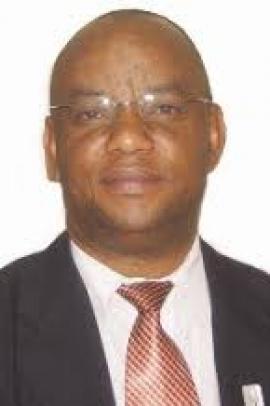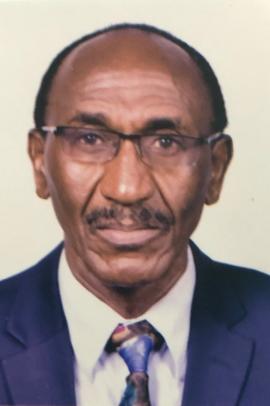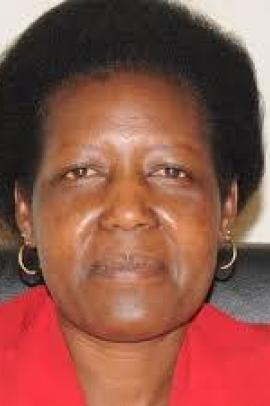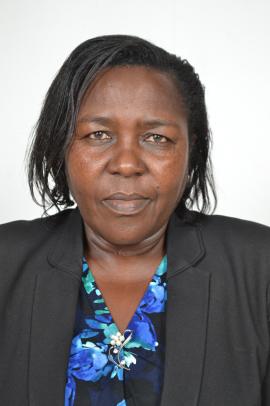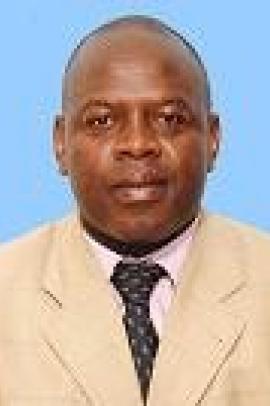Joseph Giteru Njomo was born on 6th May, 1988 in Nyeri District. He joined Kiangumba primary school in the year 1993 and sat for his KCPE exams in the year 2002 in the same school. In the year 2003, he joined Chinga Boys High School for his Secondary school education. He sat for his KCSE in the same school in the year 2006 and scored a B+ (plus) of 73 points.
He later joined the University of Nairobi in October, 2008, to purse a Bachelor of Arts (Planning) and graduated for the same in August, 2012 with a Second Class Honours (Upper Division)
He has also done other short courses in the Kenya School of Government and the African Institute for Capacity Development (AICAD)
In March, 2014, Joseph Giteru Njomo was recruited by the County Government of Nyeri to serve as a Ward Administrator. He was the first Ward Administrator for the Nyeri Town Central ward (Rware Ward) where he served for two years. He also served as a ward administrator for Gatitu/Muruguru Ward in Nyeri Town Sub County and Karatina Town Ward in Mathira East Sub County. He was later, in February, 2018, deployed to the Nyeri county department of Physical planning where he was re-designated from a ward administrator to a Principal Physical Planner, a position he still holds to date. Joseph also serves as the acting Municipal Planner for the Nyeri Municipality where he is actively being engaged in implementation of the Kenya Urban Support (KUSP) programs and projects.
Joseph enrolled for a Master of Arts Degree in Project Planning and Management at the University of Nairobi in 2018.
He is a Corporate Member of the Kenya Institute of Planners (KIP) and currently in good standing.

Thesis / Project Title
SOCIO-ECONOMIC FACTORS INFLUENCING SUSTAINABILITY OF TRANSPORT INFRASTRUCTURE PROJECTS IN NYERI COUNTY: A CASE OF NYERI TOWN MAIN TRANSPORT TERMINUS
Thesis / Project Abstract
(Max 250 words)
Socio-economic development and subsequent economic growth in the African continent is hampered by several limiting factors, including the lack of adequate transport infrastructure. Investment in transport infrastructure in Africa plays a significant role in stimulating development. This study sought to investigate socio-economic factors influencing sustainability of transport infrastructure projects in Nyeri County. The study was guided by the following objectives: to establish the influence of sustainable Agriculture by peri urban dwellers on sustainability of infrastructure projects in Nyeri county; to establish the influence of basic service provision for peri-urban dwellers on sustainability of infrastructure projects in the county; to establish the influence trade development of peri-urban dwellers on sustainability of infrastructure projects in the county; and to establish the influence of access to opportunities of employments by peri-urban dwellers on sustainability of infrastructure projects in the county. The research used simple random sampling procedure and then adopted descriptive research design. Further inferential analysis was used to assess the influence of the multiple factors. The data was gathered from the peri-urban dwellers and administration officers of Nyeri Town sub county, through questionnaires structured on the basis of the objectives of this study. Data required for analysis was collected from the respondents and analyzed using Statistical Packages for Social Sciences (SPSS). The findings of this study were; transport infrastructure influences positively to socio-economic development. This is guided by the responses collected from households. Transport infrastructure leads to sustainable Agribusiness as access to produce, farming input and marketing is not a problem to the farmers. It also facilitates quick access to basic facilities; opening of trade opportunities and employment. The research recommends that; the government of Kenya through Ministry of Roads and transport increase funding for transport infrastructure in all Counties.
Student’s Google scholar link
(affiliated to student’s university email)
Other relevant academic links
Research Supervisors
Dr. Anthony Ndung’u

